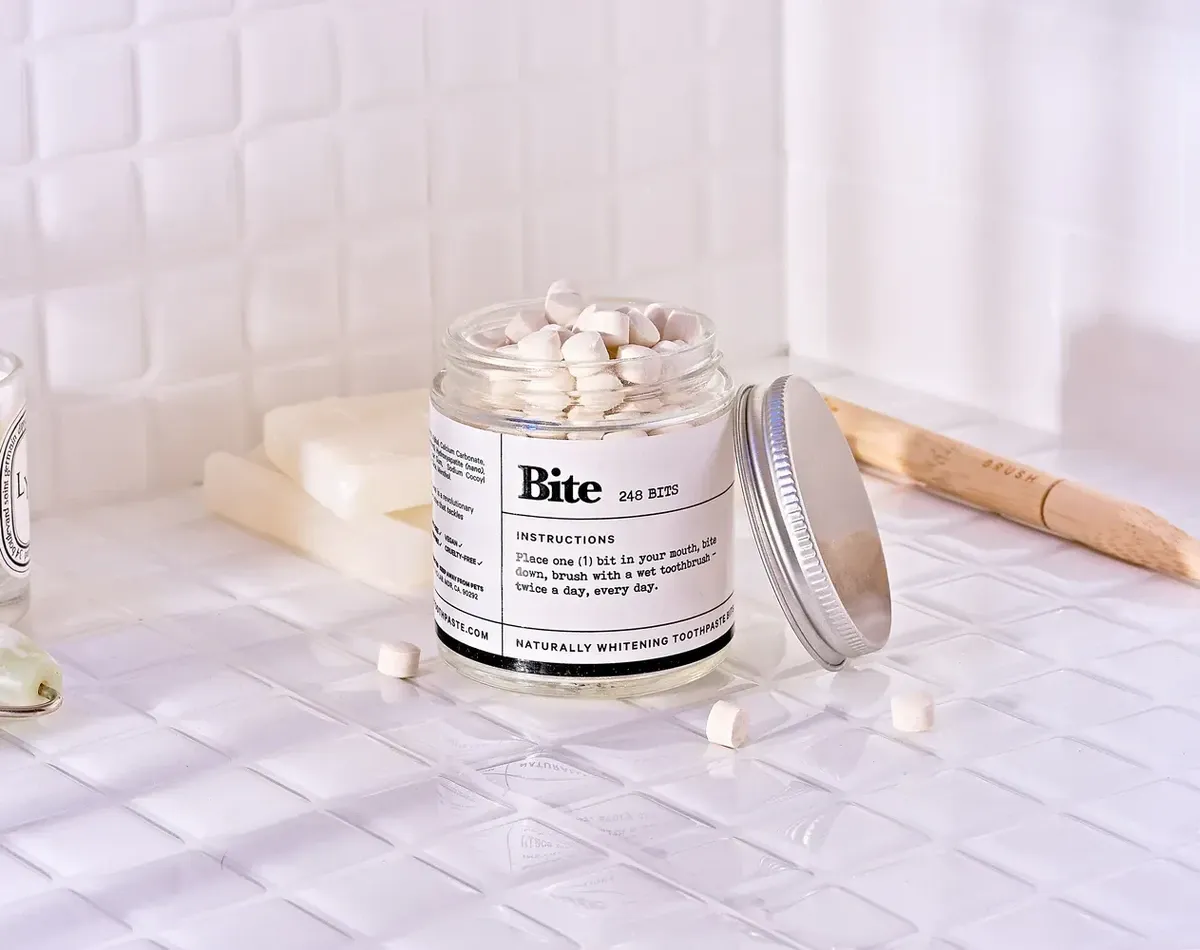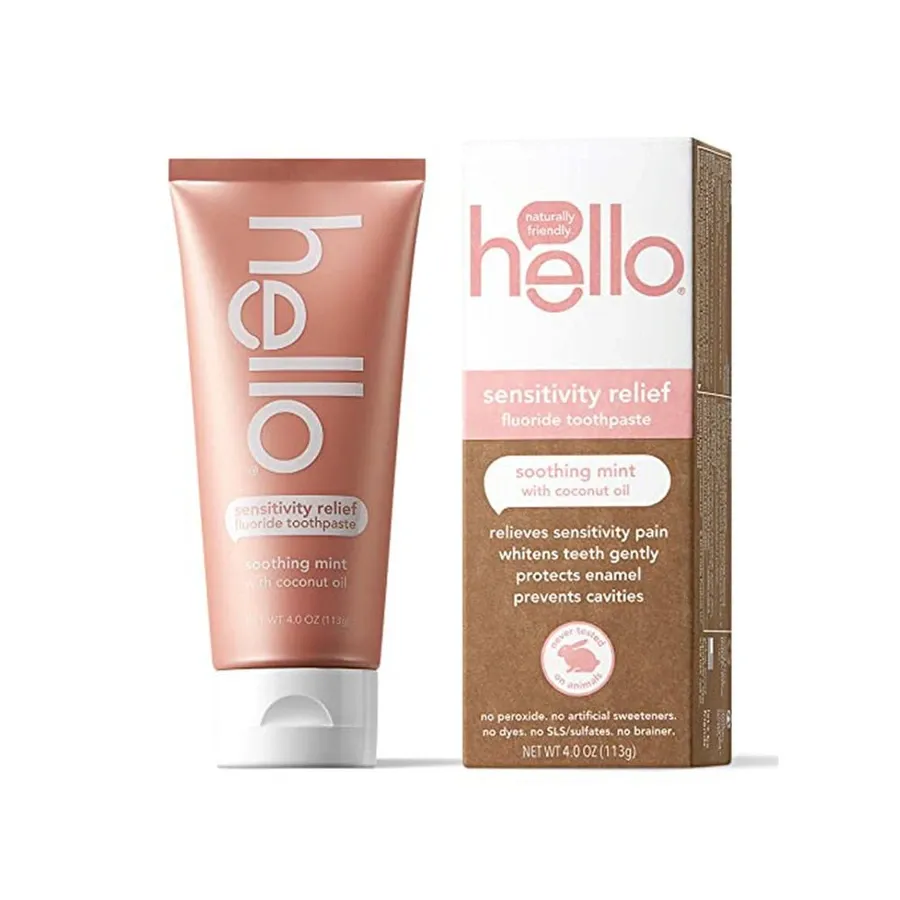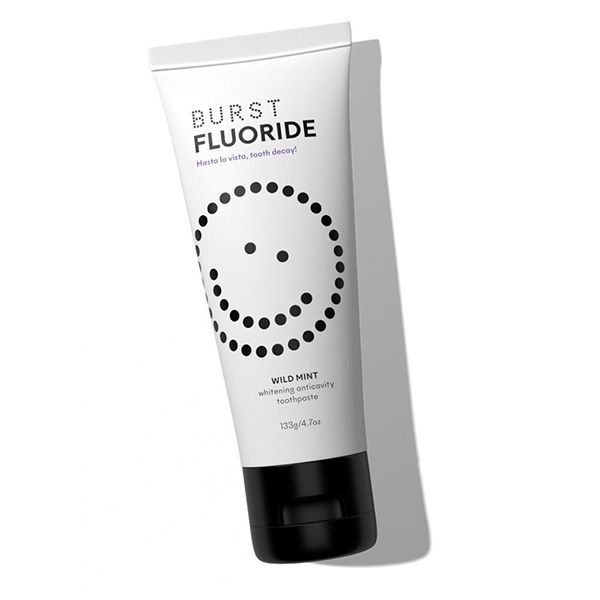6 Best SLS-Free Toothpastes in 2025

In this article, we may include products or services we think are useful for our readers. If you buy through links on this page, we may earn a small commission to help fund our mission to create more healthy smiles. Here’s our process.
Sodium lauryl sulfate or “SLS” is an active ingredient that you’ll find in a lot of very popular toothpaste brands. But for some people, choosing an SLS-free toothpaste is important, because the SLS ingredients can make their mouth peel, tissues slough, or cause other dental health problems.
What is SLS (Sodium Lauryl Sulfate)
What Are SLS Free Toothpastes?
Whenever you’re choosing a toothpaste, check the box to see what it’s created for. Do you have concerns about whitening because of heavy stain? One for more sensitive teeth? Perhaps you are more concerned about your gum health? Knowing that each formula works differently will help you narrow down your choices, regardless of the brand, especially when you’re picking one without SLS. And when in doubt, always ask your dentist or hygienist.
6 Best Toothpaste Without Sodium Lauryl Sulfate (SLS)
If you want an SLS-free toothpaste, you have a few different options. What you’ll find with SLS-free toothpaste is that many of the blends are also free of other things like parabens, sulfates, and sometimes even fluoride. But the ones that don’t have fluoride in them will usually have something like xylitol or hydroxyapatite crystals instead, to help prevent cavities and fight-off the “bad” bacteria and acids in your mouth. If you’re trying to whiten your teeth or manage sensitivity at the same time, it’s totally doable. Here are my top six picks to consider:
1. Bite Toothpaste Bits Fluoride-Free
Best SLS Free Toothpaste
Bite uses nano-hydroxyapatite (n-Ha), which has been used in Japan for over 40 years. Powered by n-Ha, a 100% non-toxic ingredient that remineralizes and desensitizes teeth without triggering sensitivity.
- Sodium laureth sulfate free
- Contains nano-hydroxyapatite (n-Ha)
- Paraben-free
- Helps whiten teeth
- Sensitivity-fighting
- Free from artificial flavoring
- Free from sulfates
- Contains xylitol
Bite toothpaste tablets uses powerful ingredients like bacteria-fighting xylitol and refreshing menthol.
2. Sensodyne Pronamel Daily Protection
Best SLS Free Sensitive Toothpaste
Sensodyne is known for being a great option if you have sensitive teeth. Sensodyne toothpastes also make an SLS-free toothpaste line (Pronamel). The Sensodyne Pronamel toothpaste helps protect teeth against acids, sweets, temperature changes, and sensitivity to contact with things like food, air, or your toothbrush.
Sensodyne Pronamel Daily Protection toothpaste is also shown to help re-harden tooth enamel to make it more resistant to cavities and acids. The Daily Protection line contains all of the benefits of the other Pronamel toothpastes, which include strengthening, fresh taste, brightening, and more. As a leading brand, you’ll also find it in most stores.
Warning!
While most Sensodyne toothpastes are SLS-free, there are some options that still contain SLS. These include Sensodyne Deep Clean, Sensodyne Rapid Relief, Sensodyne Sensitivity & Gum, Sensodyne Complete Protection, and Sensodyne Repair and Protect. Despite containing SLS, these toothpastes can still provide relief for tooth sensitivity.
Key Features
- SLS free
- Fights acid erosion
- Designed for sensitive teeth
- Contains fluoride
- Cavity prevention
3. Hello Sensitivity Relief Fluoride Toothpaste
Best Natural Toothpaste
Hello SLS-free toothpaste is designed for sensitive teeth and it’s also ADA-accepted! It tops our list of SLS-free toothpastes as it’s also free of parabens, gluten, dyes, preservatives, and artificial flavors and sweeteners. Even the tube is BPA-free!
This particular line of Hello toothpaste is specifically made for people with sensitive teeth, but it’s ideal for sensitive gums, too (which is a common issue if you’re allergic to SLS toothpaste.)
Key Features
- SLS free
- Not tested on animals
- Ideal for sensitive teeth and gums
- Contains aloe vera and coconut oil
- No artificial flavors or preservatives
- ADA approved
- Includes xylitol and fluoride for anti-cavity purposes
4. BURST Whitening Toothpaste
Best SLS Free Whitening Toothpaste
Burst SLS-free toothpaste is designed by dentists and hygienists for safe, gentle-on-teeth results for all ages. It’s naturally foamy without any SLS or parabens. Plus, it contains fluoride and xylitol for anti-cavity effects and silica to help with stain removal. Choose from three flavors: wild mint with fluoride, wild mint without fluoride, or coconut salt with charcoal fluoride.
Key Features
- SLS free
- Includes silica for natural whitening
- Contains xylitol and sodium fluoride for anti-cavity purposes (but fluoride-free flavors are available)
- No artificial colors or parabens
5. Keeko Dream Clean Antioxidant Toothpaste
Best Hydroxyapatite Toothpaste without SLS
Keeko Dream Clean Antioxidant SLS-free toothpaste is high in natural Vitamin C and contains more antioxidants than blueberries! Keeko's toothpaste is made with Native Australian Kakadu Plum Complex, a powerful medley of vitamin-C-rich superfruits to help strengthen & promote healthy gum collagen. It also uses hydroxyapatite, an alternative to fluoride to help remineralize tooth enamel.
Key Features
- Oral Microbiome Friendly
- No SLS, Parabens, or Artificial Sweeteners
- Vegan.org certified
- Plastic Neutral certified
- Supports & Stimulates Healthy Gum Collagen
- Remineralizes Enamel with Hydroxyapatite
6. RiseWell Toothpaste
Good Alternative Toothpaste
RiseWell is another vegan, cruelty-free brand of SLS-free toothpaste. They’re also free of sulfates, parabens, and fluoride. In fact, they pride their toothpaste as “safe enough to eat!” It’s naturally flavored with essential oils and also contains xylitol. This is not a regular toothpaste. Instead of fluoride, RiseWell uses hydroxyapatite crystals and calcium carbonate. This toothpaste is pretty much for anyone who wants both SLS-free and fluoride-free toothpaste but other natural ingredients included which are scientifically proven to fight against dental plaque.
Key Features
- Fluoride-free
- SLS-free
- Paraben free
- No harsh foaming agents
- Contains xylitol
- Contains several essential oils
- Vegan, cruelty-free toothpaste
Side Effects of SLS
Microscopically, sodium lauryl sulfate in toothpaste can act like an irritant to the inside of your mouth. That’s why SLS is listed as an active ingredient on the label. Most of us never have any problems using toothpaste with SLS. But some people will experience problems like:
- Peeling skin
- Burning sensations
- Redness
- Ulcers
- Symptoms that mimic gingivitis
- Sensitive teeth
Choosing an SLS-free toothpaste removes this common irritant, reducing or eliminating side-effects for individuals who tend to experience these symptoms. While not everyone is sensitive to SLS, enough people are that the label of your toothpaste has to include it as an active ingredient. Just like fluoride, SLS is specifically pointed out on the label, compared to some of the other ingredients listed on toothpaste packaging.
SLS and Teeth Sensitivity
If you have canker sores, sensitive teeth, or notice that your teeth are getting more sensitive after using an SLS toothpaste, you might want to switch to an SLS-free toothpaste instead. Sodium lauryl sulfate doesn’t just irritate delicate gum tissues, it can also increase the risk of tooth sensitivity for some people. You’ll more than likely notice symptoms in your gum tissues as well.
Using SLS-free toothpaste can help you rule out common sources of tooth sensitivity. Especially if you decide to switch to a sensitive teeth toothpaste that’s particularly formulated for sensitive teeth. For best results, you’ll probably want to use your newer toothpaste twice a day for two weeks before you see the full effects of the anti-sensitivity ingredients.
Why is Sodium Lauryl Sulfate (SLS) in Toothpaste?
SLS is almost like a type of detergent and is know for its foaming properties. As it foams and bubbles, it aids your toothbrush in removing plaque, leftover food debris, and acids on your teeth. It also works with the other ingredients inside of your toothpaste to hold all of them together, creating a nice, thick paste or gel that can withstand a bit of time on the shelf.
Sodium lauryl sulfate also has antimicrobial properties, helping reduce the “bad” bacteria in your mouth whenever it’s brushed onto your teeth and gumlines.
That being said, it’s ok to use an SLS-free toothpaste if it has the right ingredients in it. If you’re experimenting with different types of toothpaste and see one where SLS isn’t listed, you don’t have to worry about whether or not it’s still “good” for you or not. Remember, whatever toothpaste you use is still only as good as your brushing technique! The added ingredients are just extra perks to help with fresh breath, anti-cavity benefits, etc.
Other Irritant Ingredients In Toothpaste
SLS isn’t the only ingredient in some toothpastes that people are sensitive to. Other common active ingredients that might cause tissue sloughing, peeling skin, or sensitive teeth include:
Sodium dodecyl sulfate (SDS)
Sulfuric acid monododecyl ester
Does SLS Whiten Teeth?
SLS doesn’t necessarily whiten your teeth the way peroxide-based gels do, but it does help reduce surface tension across your tooth enamel to help make teeth cleaner, smoother, and less likely to accumulate stain buildup throughout the day.
If you really want to whiten your teeth, you’ll probably pick up a whitening toothpaste that has common ingredients like hydrogen peroxide, carbamide peroxide, pyrophosphates, or even silica, which all help remove surface stains as you’re physically brushing your teeth. Using an SLS-free toothpaste won’t impact whether or not your toothpaste helps clean your teeth and remove surface stains (at least by very much.) However, you might still have sensitivity that aren’t caused by SLS, simply because of the teeth whitening ingredients included that may irritate sensitive teeth like activated charcoal.
How To Properly Brush Teeth
The way you brush your teeth makes way more of a difference in your oral health than the type of toothpaste you pick at the store. For healthy teeth, you want to make sure you’re removing as much plaque as possible, fighting off gingivitis or gum disease, keeping your bad breath fresh, and reducing your risk of cavities and tooth decay, make sure you do the following:
- Brush no less than twice a day
- Brush at least two minutes at a time
- Focus along the gumlines, where plaque is heaviest (angle the bristles toward your gum tissues)
- Make short strokes on only one or two teeth at a time (brushing too wide or aggressively tends to cause the bristles to “skip” over several teeth)
- Brush the inside, outside, and chewing surfaces of all teeth
- Use a fluoride-based toothpaste to help remineralize teeth
- Follow up with floss to clean areas between your teeth, that a brush won’t reach
The Best SLS Free Toothpastes
If the skin inside your mouth peels easily, you get frequent ulcers, or your teeth are sensitive, consider switching to SLS-free toothpaste. Not everyone is sensitive to sodium lauryl sulfate, but the people who are SLS sensitive tend to have tissue sloughing whenever they use toothpaste with SLS in it. As long as you’re choosing a fluoride toothpaste for anti-cavity purposes and brushing your teeth properly every time, it’s completely fine to have a toothpaste without ingredients like SLS.





